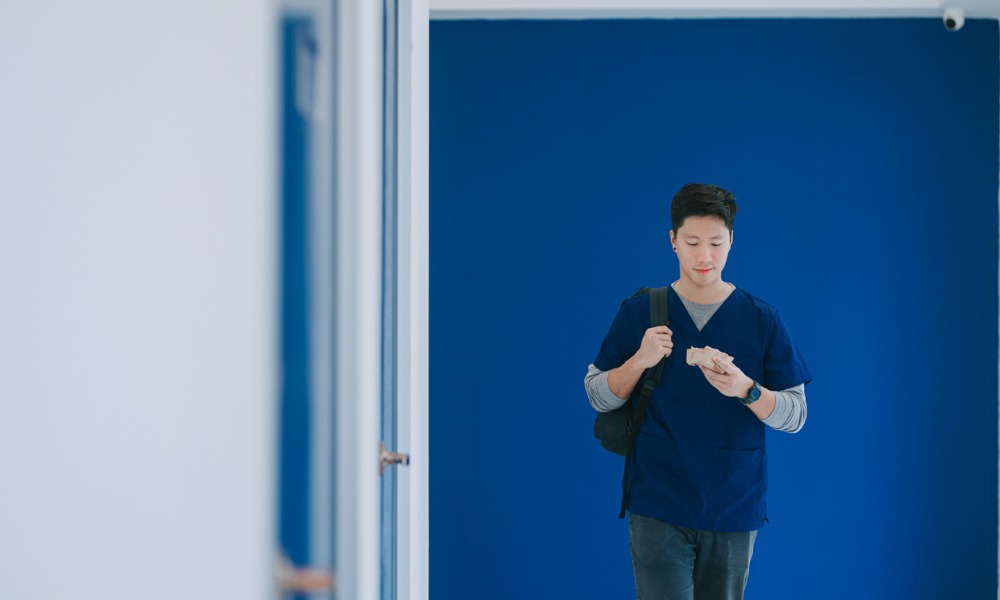
'He dishonoured the dedication and hard work of his colleagues,' says court

A Magistrate's Court in Singapore recently dealt with a case involving a healthcare worker accused of molesting a patient at a hospital.
The court's decision highlighted important issues surrounding professional misconduct, patient safety, and the abuse of trust in healthcare settings.
The case centred around allegations that a male nurse manager inappropriately touched a sedated male patient in a recovery room after a medical procedure.
This incident raised serious questions about proper protocols, patient vulnerability, and the responsibilities of healthcare workers in positions of authority.
The court heard that the patient had undergone an endoscopic procedure at a private specialist clinic located within a hospital.
The worker was employed as a nurse manager at this clinic, which specialised in endoscopy procedures. On the day of the incident, the patient was admitted to the hospital for a gastroscopy and colonoscopy.
After the procedure, while still groggy from sedation, the patient reported being molested twice by the worker in the recovery room. The patient testified that he woke up to find someone stroking his genitals and shining a light on his groin area.
He claimed this happened on two separate occasions within a short timeframe. The second time, the patient said he confronted the person, asking "What are you doing?"
The worker allegedly then moved his hand to the patient's stomach area and asked if he was feeling alright. The patient reported the incidents to hospital staff immediately after.
Several nurses testified that the worker had no reason to enter the recovery room at that time, as the patient was not yet ready for discharge. One nurse even recalled stopping the worker from trying to enter the room earlier.
The hospital nurses explained that clinic staff, including the worker, were only supposed to come to the recovery area when called to process a patient's discharge.
The worker denied molesting the patient but admitted to entering the room twice and touching the patient's abdomen. He claimed he was checking on the patient's wellbeing. However, the court found his testimony lacked credibility due to inconsistencies.
The worker had initially denied entering the room at all when questioned by clinic doctors, only later admitting to entering and touching the patient's abdomen.
A key piece of evidence was CCTV footage showing the worker entering the ward around the time of the alleged incidents. The patient's contemporaneous notes and immediate reports to staff also supported his account.
The defence called an expert witness, a senior consultant anaesthesiologist, who suggested the patient may have hallucinated the incidents due to anaesthesia effects.
However, the court ultimately rejected this theory as speculative, noting that the expert had never personally observed such hallucinations in patients and acknowledged they were extremely rare.
The patient's doctor testified that the sedation level was light and the patient would have been sufficiently responsive by the time of the alleged incidents.
Hospital records showed that the patient was "arousable when calling" before being moved to the recovery room. This medical evidence undermined the defence's claim that the patient may have been confused or hallucinating.
The court found the patient's testimony to be "extremely cogent and unusually convincing." It was determined to be both internally and externally consistent with other evidence.
The judge said:
"I believed the victim's testimony, which I found to be internally and externally consistent, unusually convincing and fully corroborated by other evidence."
In contrast, the worker's account was deemed not credible. The judge noted:
"I disbelieved the accused's testimony. He was not truthful and had repeatedly lied to the clinic doctors as whether and why he had entered the room or touched the victim."
The court also considered the worker's prior actions, including contacting the patient using his personal mobile number, which was against clinic policy.
Based on the evidence, the court convicted the worker on two charges of outraging modesty. In determining the sentence, the judge considered several aggravating factors, including:
"I found that the accused had exploited the vulnerability of the victim when he molested the latter, not once but twice. It was not in dispute that the victim had just completed a procedure under sedation (albeit low level) at the centre and he was then wheeled into the recovery room where he was left alone."
The judge emphasised the seriousness of abusing a position of trust in healthcare:
"I state in no uncertain terms that his criminal conduct was a disservice to the nursing profession and he has dishonoured the dedication and hard work of his healthcare colleagues."
The court applied a sentencing framework established in previous cases, considering factors such as the degree of sexual exploitation, circumstances of the offence, and harm caused to the victim. The judge placed the offences in the most serious category due to the multiple aggravating factors present.
Ultimately, the court sentenced the worker to 16 months' imprisonment and four strokes of the cane, noting:
"Given all the circumstances of the present case and considering the accused's overall culpability and lack of contrition, the aggregate sentence of 16 months' imprisonment and four strokes of the cane is appropriate and justified."
This case underscores the importance of maintaining strict professional boundaries and safeguarding vulnerable patients in healthcare settings. It also highlights the serious consequences for healthcare workers who violate the trust placed in them.